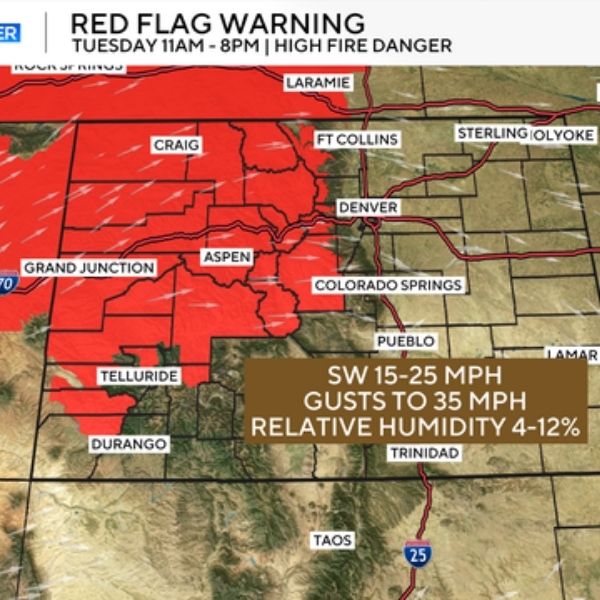Colorado ranks eighth in the U.S. for low birth weights, according to a new study by Birth Injury Lawyer. That might seem surprising, given the state’s relatively high quality of life — but there’s a key factor behind the numbers: altitude, not poverty.
Colorado joins states like Mississippi, Louisiana, Georgia, Alabama, and West Virginia — all of which lead the nation in low birth weights. However, in Colorado’s case, it’s not tied to socioeconomic factors. Instead, medical research points to high elevation as the main culprit.
A 2020 study highlighted that high altitude is a major contributor to low birth weights in Colorado. Infants born at high elevation weighed an average of 118 grams less than those born at lower altitudes. Even after adjusting for other factors, babies at higher elevations weighed 101 grams less, and their risk of being classified as low birth weight increased by 27%.
“High altitude remains an important determinant of elevated low birth weight rates in Colorado,” the study noted, adding that it has likely impacted Colorado’s progress toward national health goals set by the Healthy People 2010 and 2020 initiatives.
Pregnant in Colorado? Stay Below 10,000 Feet
Dr. Allison Herman of University of Colorado Medicine advises pregnant women to avoid staying overnight above 9,800 feet.
“Spending a short time at a higher elevation is not dangerous,” she says. “But pregnant patients should try to stay under 10,000 feet. You might feel lightheaded, dizzy, or short of breath above that level. Enjoy the views, but maybe hold off on climbing a 14er until after the baby arrives.”
Research Offers Hope at High Altitudes
Ongoing research at the University of Colorado Anschutz Medical Campus is exploring ways to reduce pregnancy complications caused by altitude. According to their findings, reduced oxygen levels (hypoxia) at high elevations disrupt key molecular processes in the body, which can negatively affect reproductive health.
One promising breakthrough? Sildenafil, a medication being studied for treating neonatal pulmonary hypertension, a serious breathing condition in newborns exposed to hypoxia during pregnancy.
In Other States, Poverty Plays a Larger Role
Outside of Colorado, low birth weight is more commonly linked to poverty and limited access to healthcare. According to Birth Injury Lawyer, contributing factors include:
-
Inadequate prenatal care
-
Poor maternal nutrition
-
Smoking and substance use
-
Chronic health conditions
-
Socioeconomic disparities
“These statistics highlight significant public health challenges that require immediate attention and intervention,” the report states.
To reduce the risk, expectant mothers are encouraged to seek early prenatal care, eat well, avoid alcohol and tobacco, and manage existing health issues with support from healthcare providers.
For moms-to-be in Colorado, being altitude-aware and health-conscious can make all the difference.
This article has been carefully fact-checked by our editorial team to ensure accuracy and eliminate any misleading information. We are committed to maintaining the highest standards of integrity in our content.

Katie is a senior who has been on staff for three years. Her favorite type of stories to write is reviews and features. Katie’s favorite ice cream flavor is strawberry.















Leave a Reply